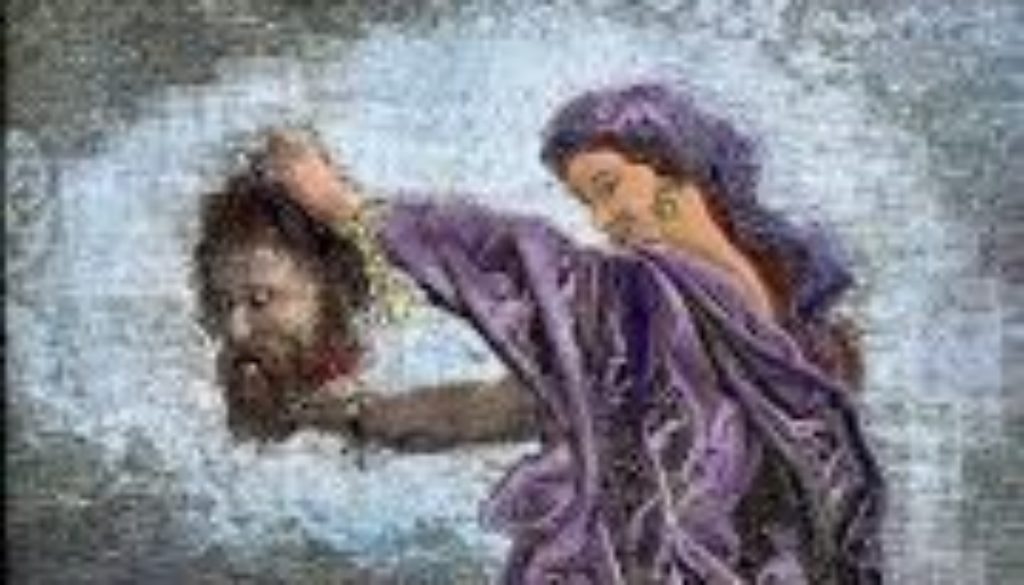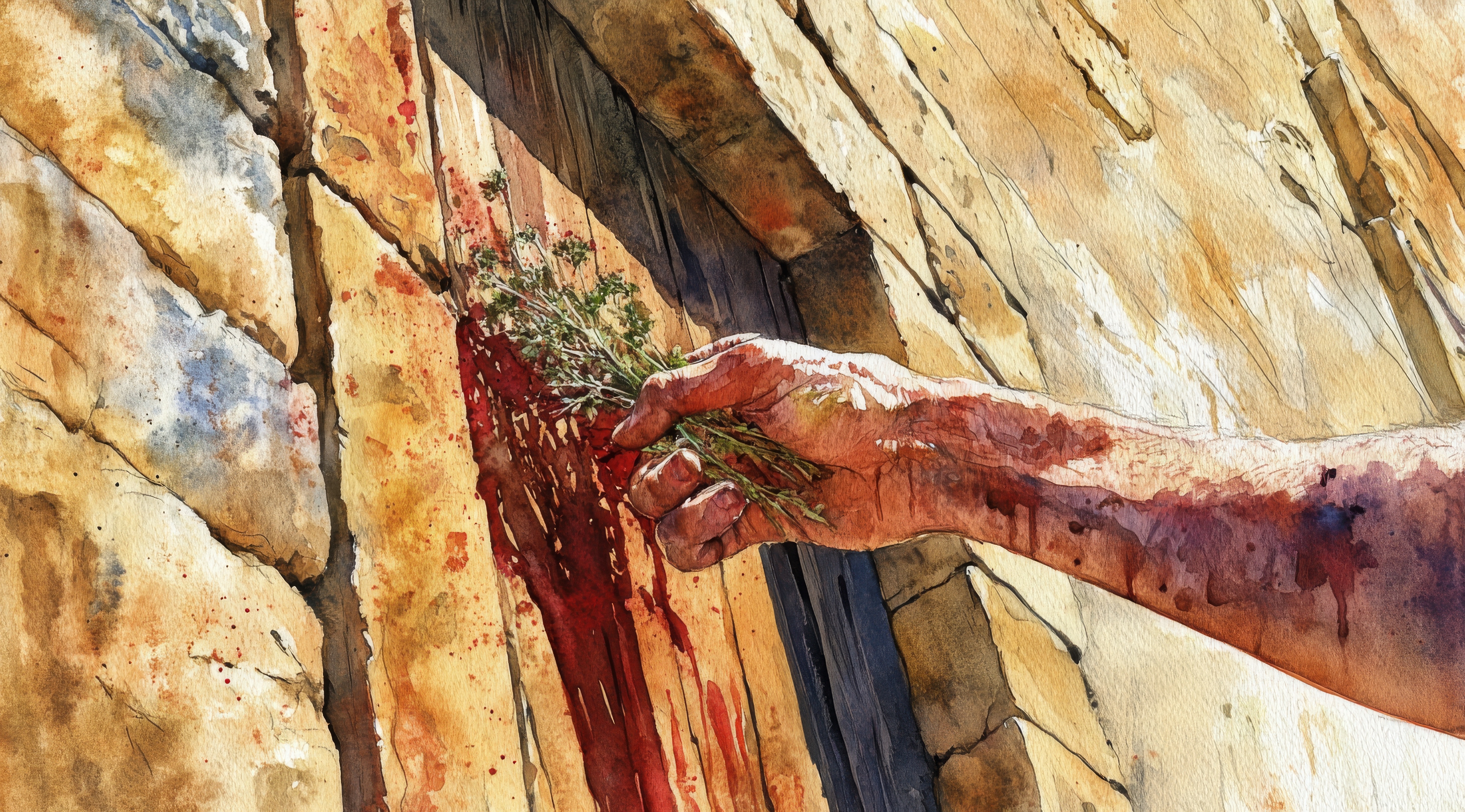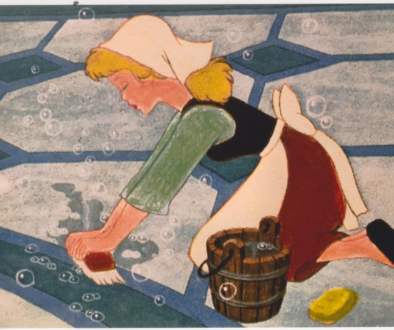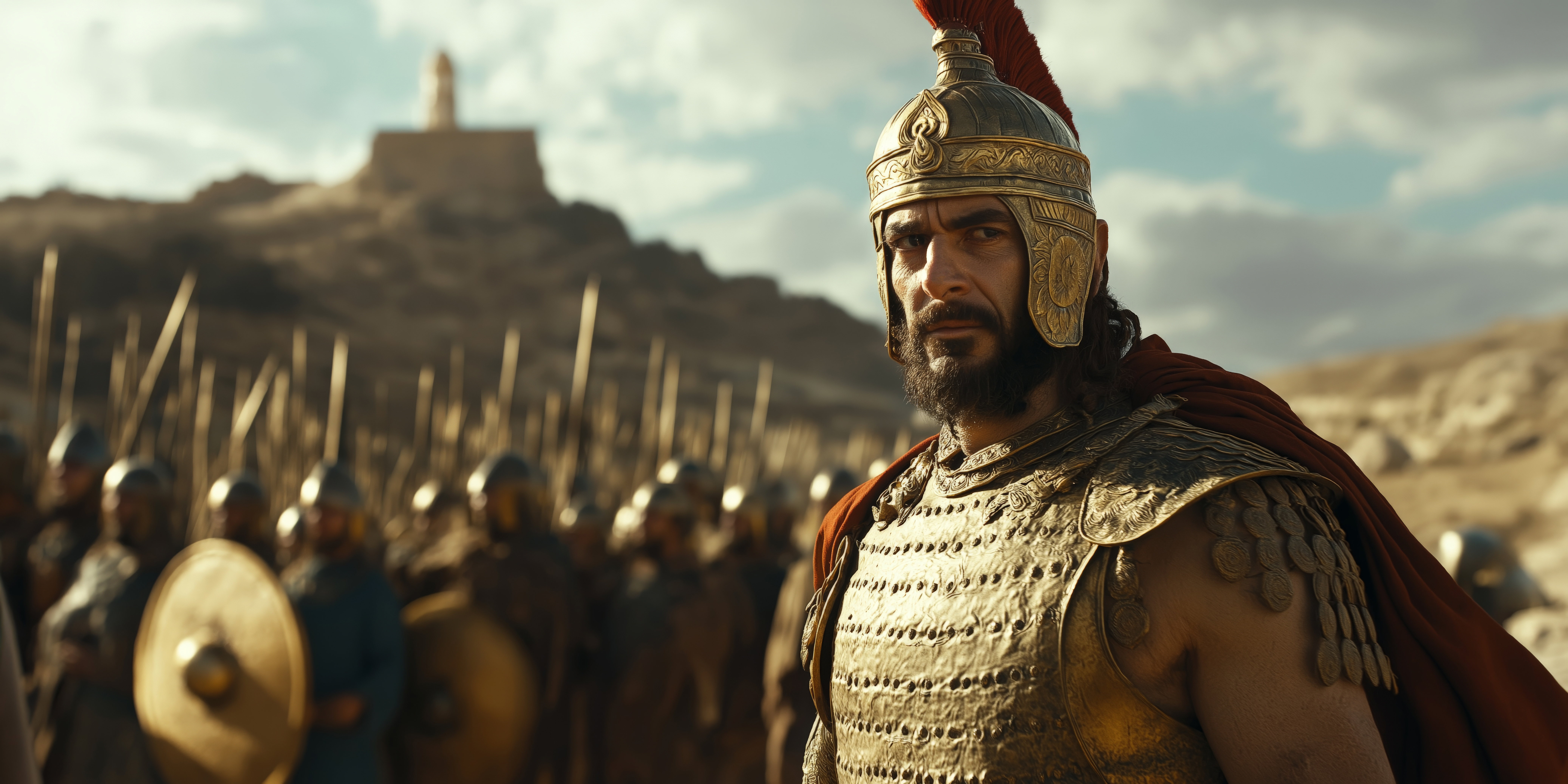2 Samuel 20:1-26 Rebellion
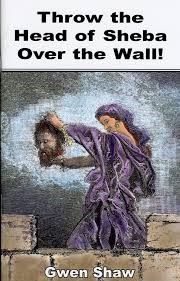
As David is returning to Jerusalem to resume his role as king, Sheba stirs up the people into a rebellion. The road home is ‘bumpy’ and even covers the ground of murder.
We left David at Gilgal where the men of Israel confronted him. They were confronting the tribe of Judah more than David directly. They had no idea that David had communicated with his own clan and asked them to be first in bringing him home. And he does NOT clear up this conflict. This issue sparks a rebellion that splits Israel in two. Interesting that this is close to the same split that will happen two generations later.
Let’s rejoin David at Gilgal.
♥ ♦ ♥
The men of Judah stand tall as the men from the other tribes accuse them of stealing the king. “He is our kin. We are well within our rights to carry him home.” There is no argument that can dispute this fact or sway the men from their duty.
Sheba, one of the men from Benjamin who had accompanied Shimei, takes matters into his own hands. He is a scoundrel and unafraid to stir up trouble. He grabs a ram’s horn trumpet from his belt and sounds a loud blast.
Every man in Israel knows this sound. It is a call to attention. Orders are sure to follow. They are not disappointed as Sheba’s voice rises up as the notes die on the breeze.
“We have no portion in David, and we have no inheritance in the son of Jesse; every man to his tents, O Israel” (verse 1b).
Sheba had been listening well to the argument that arose and he used it to drive a wedge between Judah and the rest of the tribes. The men of Israel accepted Sheba’s cry and withdrew from David and followed Sheba instead.
David’s heart is deeply troubled by this turn of events but, at the moment, there is little he can do. He has not yet even been back on his throne for a day. He must put things to rights at home before dealing with Sheba. He continues on to Jerusalem with the tribe of Judah surrounding him.
When David reaches Jerusalem the first person to greet him is Mephibosheth. He was eager to welcome David home. His clothes are dirty and his hair is unkempt, including his beard. The bandages on his feet are also very soiled. David takes in his appearance but doesn’t comment on it. Instead he welcomes his presence. This is Jonathan’s son, a man David loved with his whole heart.
“Why did you not go with me, Mephibosheth?” (2 Samuel 19: 25b) asks David.
With tears in his eyes Mephibosheth answers the man who lifted his life out of the depths of despair. “My lord, O king, my servant deceived me, for your servant said to him, ‘I will saddle a donkey for myself, that I may ride on it and go with the king.’ For your servant is lame. He has slandered your servant to my lord the king. But my lord the king is like the angel of God; do therefore what seems good to you. For all my father’s house were but men doomed to death before my lord the king, but you set your servant among those who eat at your table. What further right have I, then, to cry to the king?” (2 Samuel 19:26-28).
David remembers Ziba meeting him on the way out of Jerusalem with donkeys and provisions. He also remembers the words Ziba spoke regarding Mephibosheth. Is it possible there was a misunderstanding between the two men? No matter. Mephibosheth seems genuine in his love for David. David cannot rightly take all he had given Ziba and return it again to Mephibosheth. He settles for something in between.
“Why speak any more of your affairs? I have decided: you and Ziba shall divide the land” (2 Samuel 19:29).
Mephibosheth is overjoyed to have David’s favor once again. His joy of having David home in Jerusalem overshadows all else. “Oh, let him take it, since my lord the king has come safely home” (2 Samuel 19:30).
David continues onto his palace with his family surrounding him. He has things to set to rights when he gets home. The first task will be attending to the destruction Absalom wreaked on his home while he was away.
News of Absalom’s acts with David’s concubines had reached him at Mahanaim. Remedying this would be his first order of business.
David settled himself on his throne after he had dismissed his family to their own homes. He called for the ten concubines who were left behind. They were brought before him right away. Their heads were bowed in shame and they covered their faces as they stood in his presence. David’s heart was moved by their plight.
“You have served me well and I regret deeply the shame that has been visited on you. You need not be concerned for your futures. You will be well provided for. You will be given a home to share and guards to ensure your safety. You will remain there the rest of your lives. But because of Absalom’s acts I will not come into you again nor will you see my face again. You will live as widows from this day forward. Any needs that arise among you will be met by my servants.”
As women of Israel they each understood the damage that had been done to them by Absalom. They could have been put to death but their king spared their lives and pledged to see that they were cared for as long as they lived. They dutifully followed the guards from the room without a sound and were escorted to their new home. At least they had one another for companionship.
The next order of business was to deal with the rebellion that threatened the very fabric of Israel. David turned to Amasa who had accompanied him back to Jerusalem with the men of Judah. Amasa was now the commander of David’s army as he had promised.
“Call the men of Judah together to me within three days, and be here yourself” (verse 4a).
Amasa bowed and then left the throne room. He would begin on the king’s mission but he was in no hurry with this task. He still felt conflicted over his new position. He had served Absalom when he rose up against David and now here he was in David’s service after Absalom’s death. He wondered what would have happened if he had been by Absalom’s side during the battle. Would he have survived? He was under no illusion that Absalom would have been successful as the battle was clearly won by the Lord. But did he truly deserve this position? Would David’s men respect him in this place?
The three days had come and gone. Amasa and the men of Judah had not arrived. David would wait no longer. He would use his own faithful men. But he would send them out under the direction of Abishai, not Joab. David KNEW that it was at Joab’s hand that Absalom had died. He could not rightly accuse him as it was done in the throes of battle but Joab’s disobedience to David’s commands forever altered their relationship.
David called Abishai. Once he had arrived David shared his deep concern with him and set him about correcting the situation.
“Now Sheba the son of Bichri will do us more harm than Absalom. Take your lord’s servants and pursue him, lest he get himself to a fortified cities and escape from us” (verse 6b).
Abishai gathered all David’s men. These men included Joab, the Cherethites, the Pelethites and all David’s mighty men. This was a force to be reckoned with.
David’s forces set out on the trail of Sheba. When they reached the great stone that is in Gibeon they encountered Amasa. He was coming to meet them.
Joab, who was dressed as a regular soldier came toward him. Under his garment Joab had hidden a sword in a sheath fastened to his thigh. As he came towards Joab the sword ‘fell out’ and into Joab’s hand. Amasa didn’t notice any of this happening. He was simply watching Joab as the two approached one another.
Joab had evil intent in his heart. This was the man the king had chosen to replace him with. And he couldn’t even be counted on to complete a simple task. Joab kept all this concealed in his heart and behind his smile.
“Is it well with you, my brother” (verse 9b) asked Joab as he met Amasa. Joab then took Amasa by the beard as if to kiss him and drew him in close. With his other hand though was the sword. As Amasa readied to embrace his cousin Joab thrust his sword into Amasa’s stomache and spilled his entrails on the ground with the first blow. He left Amasa there to bleed out and die.
Joab rejoined Abishai, his brother, and continued the pursuit of Sheba. One of Joab’s special soldiers stood by the body of Amasa where it lay.
The men who were following Abishai and Joab were stunned to inactivity by the sight of Amasa lying in the middle of the highway in a pool of his own blood. Finally Joab’s man called out to them. “Whoever favors Joab, and whoever is for David, let him follow Joab” (verse 11b).
This snapped the men out of their stupor and they set off behind Joab and Abishai. Each subsequent man that passed Amasa though stopped to gawk. Joab’s men decided that it would be best to remove Amasa from view. Two men picked him up and carried him into a field beside the road and covered him with a cloak. Now all the men proceeded easily after Joab and Abishai.
Sheba had been on the run for several days while David was mounting a response. He had made his way throughout all Israel and finally ended up in the city of Abel of Beth-maacah. All his clan had joined him; the Bichrites.
Joab and all those who were with him came to the city where Sheba had found refuge.
“He thinks to hide behind the skirts of the city’s women” spat Joab.
“Then we will part those skirts and drag him out from between them” answered Abishai.
Joab’s forces began building siege hills beside the walls. They also felled the largest trees they could find to construct battering rams to use against the exposed portions of the walls and the gate. It took several hours to complete all the preparations. A portion of Joab’s men stood guard around the perimeter to ensure that Sheba and his men didn’t escape.
While the siege works were being constructed those inside the city were keeping close watch. This city was famous for resolving disputes between parties without excessive bloodshed. They did not want to see their city fall over this dispute that had nothing to do with them.
One of the elders of the city was an older woman. She was known for her wisdom and ability to get to the heart of the matter. She could not stand by and watch her city be destroyed. She called out to one of the soldiers near the wall. “Listen! Listen! Tell Joab, ‘Come here, that I may speak to you’” (verse 16b).
Her insistent tone compelled the soldiers to summon Joab. He came over to where they could see one another.
“Are you Joab?” (verse 17b) she asked.
“I am” (verse 17c).
“Listen to the words of your servant” (verse 17d).
“I am listening” (verse 17e) replied Joab.
“They used to say in former times, ‘Let them but ask counsel at Abel,’ and so they settled a matter. I am one of those who are peaceable and faithful in Israel. You seek to destroy a city that is a mother in Israel. Why will you swallow up the heritage of the Lord?” (verses 18-19).
“Far be it from me, far be it, that I should swallow up or destroy!” (verse 20) exclaimed Joab. “This is not true. But a man of the hill country of Ephraim, called Sheba the son of Bichri, has lifted up his hand against King David. Give up him alone, and I will withdraw from the city” (verse 21a).
The old woman nodded wisely. “Behold, his head shall be thrown to you over the wall” (verse 21b).
Joab watched as the woman joined a group of people waiting nearby. As she spoke with them they nodded and pointed. Finally they moved off deeper into the city where Joab could no longer see them.
Within an hour the woman was back. With her was a man carrying the head of Sheba. He drew back his arm and brought it forward in an arc, launching the head from his hand. It sailed over the top of the city wall with ease. The head was quickly gathered up and examined. It was indeed that of Sheba the son of Bichri.
Joab blew the trumpet as soon as the confirmation was made. David’s men dispersed from the city and made their way back to their own homes. The rebellion was over. Israel would stand united again.
With the death of Amasa, Joab was once again in charge of all the army of Israel.
(to be continued)
♥ ♦ ♥
I hope you don’t mind that I included Mephibosheth’s story in today’s section. The timeline made it fit better here. I am glad that the reports of Ziba were false. Mephibosheth wasn’t waiting for his turn on the throne as David fled. He was waiting in expectation for his servant to bring him the means to join David. Instead Ziba came to David with supplies belonging to Mephibosheth that he would have gladly offered. Another tangled web of lies. I wonder why David didn’t punish him for the deceit. Was it because there was nothing to prove either man’s account? Was he in a forgiving mood? Or was he not punishing Ziba because he had provided for their journey?
On the point of Joab, that man needed taken out of service. David overlooked his sins too often. He should have been held accountable for Abner’s death then all the others wouldn’t have had to die. Even when demoted, Joab found a way to rise back to the top. I wonder if David’s inability to discipline his children translated to the same with Joab.
Father God, thank You for Your stories. I know Joab won’t get away with murder forever. You hold us accountable even if the world doesn’t. Joab’s sin wasn’t a ‘slip and fall’ but a consistent pattern of behavior. That makes a difference in seeking forgiveness.
PLEASE don’t let me be a ‘Joab’. Not that I murder or kill for political power. But don’t let me be stay in a pattern of sin that separates me from Your presence. I want nothing in the way between us Father.

